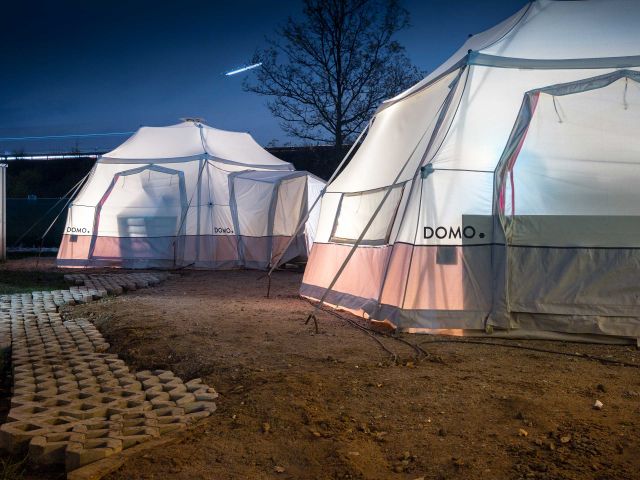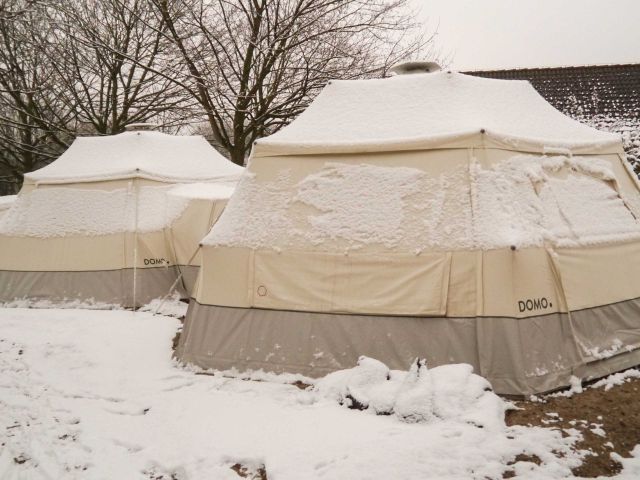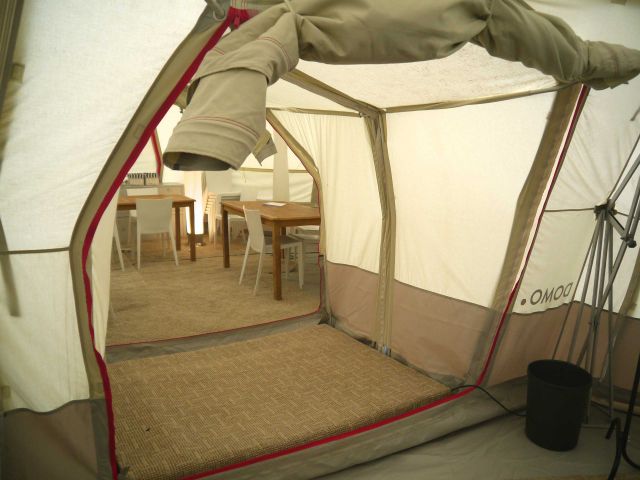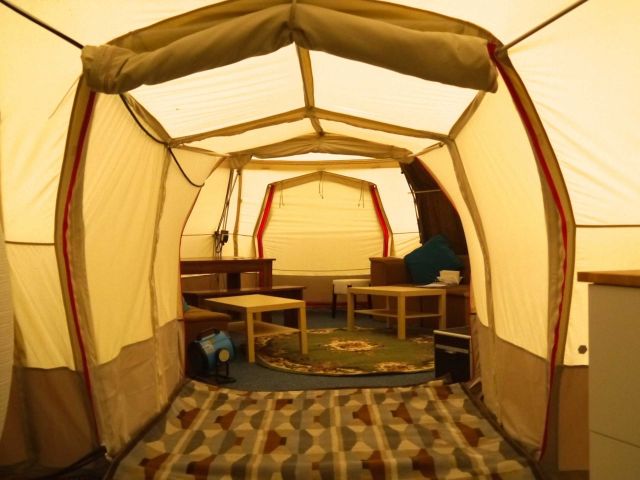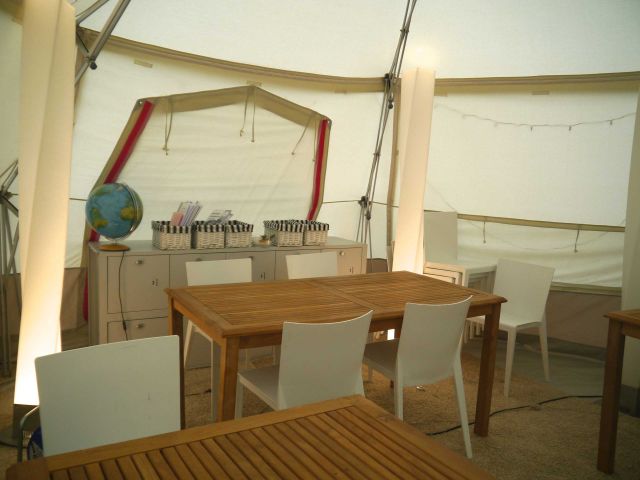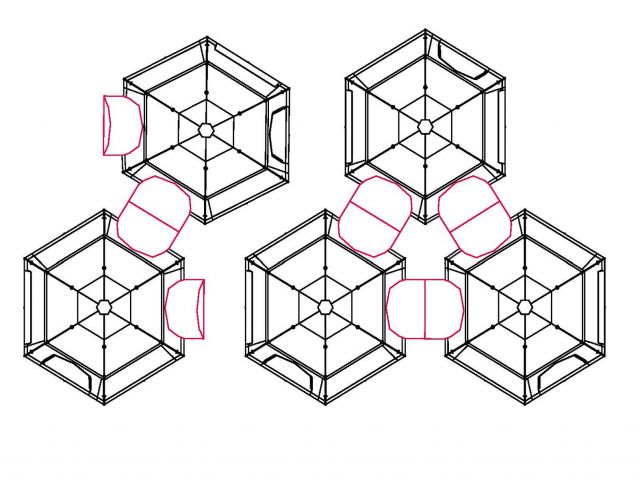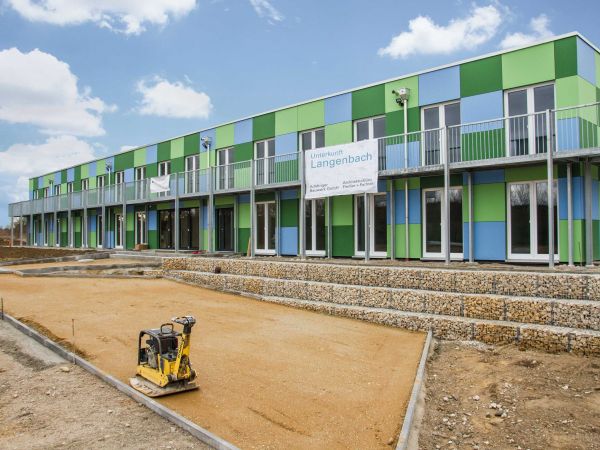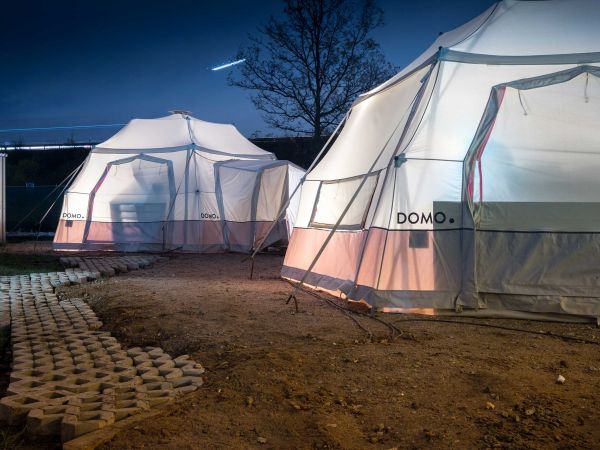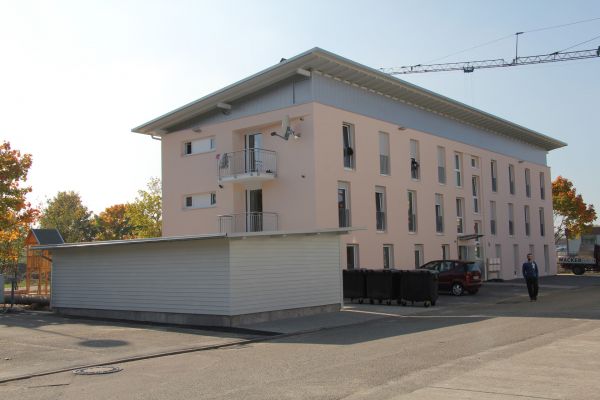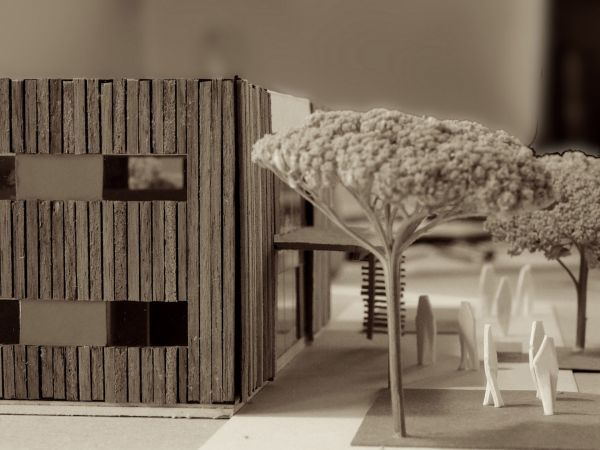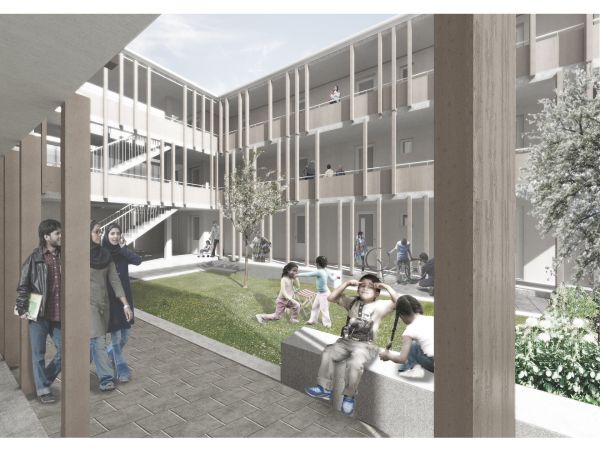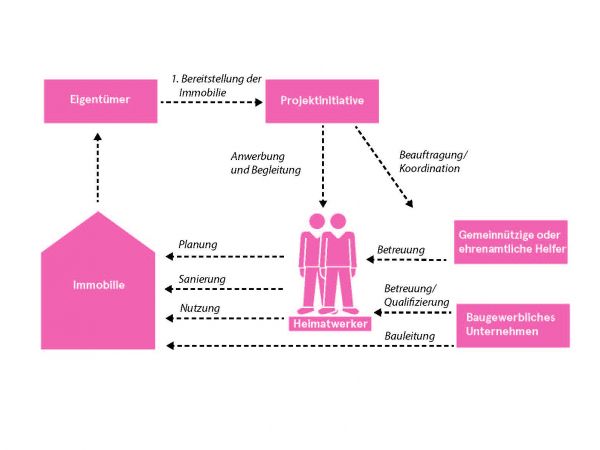Recreation space in first admittance facility, Hamburg
The tents were set up as common spaces and mobile first aid stations in various first admittance facilities for refugees in Hamburg. The individual tents can be connected together with zippers and used as a living space.
Status | Type of residents |
Modular units | Building method |
Building (Detail) | Country |
Living space per person (m²/person) | Architect |
Construction firm |
Hamburg's social services have developed a new kind of refugee tent: the DOMO. Inhabitants can customize it to different climatic conditions onsite and adapt it to their cultural and social needs. In this way, the DOMO provides more than merely protection against wind and weather, but provides a real retreat—a temporary home. An emphasis has been laid on creating adequate solutions in the humanitarian context and planning efficiently for emergency aid.
The DOMO is easy to expand so that it can be adapted to changing needs and challenges. As many DOMOs as needed can be linked together at the awning via zippers. There are limitless ways to set the tents up; the system can be adapted to any amount of people or any spatial context. DOMO is not another tent. It's the first mobile “transitional shelter” solution to lastingly improve the living conditions of people driven from their homes by conflict and natural disaster.
Instead of constantly buying new tents or replacing them with inflexible, expensive products, it’s easy to expand the DOMO system. The individual DOMO units can be connected like “building blocks.”
(Excerpt from project description)

